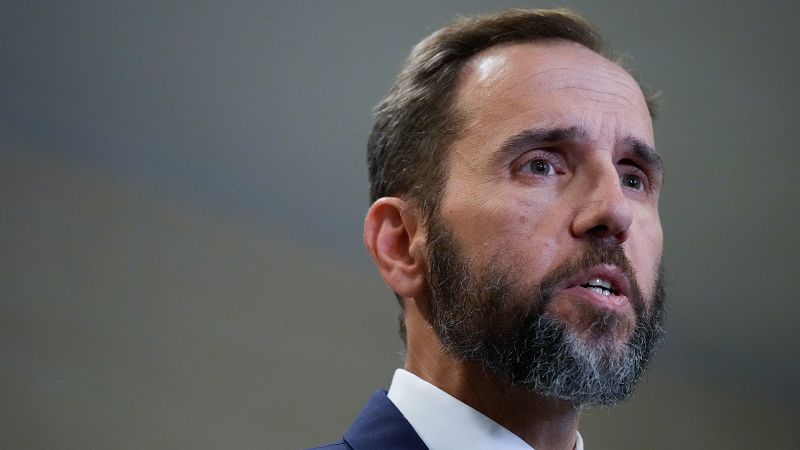In an increasingly tumultuous political landscape, the Office of Special Counsel (OSC) has launched an investigation targeting former special counsel Jack Smith. This high-profile investigation delves into Smith’s criminal probes concerning former President Donald Trump’s handling of classified documents and alleged attempts to undermine the integrity of the 2020 election. The very nature of this inquiry raises fundamental questions about political accountability and the preservation of democratic practices within the realm of federal governance.
The genesis of the investigation is grounded in concerns surrounding potential violations of the Hatch Act. This Act is specifically designed to restrict certain political activities by government employees, aiming to prevent the federal government from exerting undue influence on elections and ensuring that its activities remain nonpartisan. The OSC’s interpretation of this critical rule clarifies that it encompasses not only federal employees but also state and local personnel who are engaged with federally funded programs and services. The overarching objective of the Hatch Act is to uphold the integrity of the electoral process in the United States.
In delving into establishing the OSC’s role, it’s essential to note that it is independent from the special counsels, like Smith, who are tasked with overseeing politically sensitive investigations by the Justice Department. The OSC was created by Congressional action and is currently under the leadership of an acting chief, a position filled by a Trump appointee after the previous head, nominated by President Joe Biden, was dismissed. The agency’s mandate includes addressing matters related to whistleblower retaliation, alongside investigations into possible violations of the Hatch Act.
As reports regarding the investigation emerged, outlets like CNN have reached out for comments from Jack Smith’s representatives, further amplifying the media scrutiny surrounding this unfolding situation. Notably, the New York Post was the first to report on the OSC’s actions, setting the stage for a broader discussion about the implications of political investigations in contemporary governance.
In 2021, a striking number of thirteen officials from Trump’s initial administration were identified as having violated the Hatch Act. This targeted approach highlights the challenge of maintaining the boundaries between political activities and public service, as the repercussions for such violations can greatly differ, ranging from minor reprimands to more severe consequences such as job termination. The nature of violations under the Hatch Act categorizes them as workplace misconduct rather than criminal offenses, which complicates discussions regarding accountability within the federal workforce.
Interestingly, Jack Smith resigned from his position at the Justice Department earlier this year, following months after he officially dropped the classified documents and election-related cases. This resignation accentuates the historical context of his investigations, particularly as they marked the unprecedented instance of a former U.S. president facing federal criminal charges. The implications of such a monumental event set a new precedent in American politics.
Donald Trump and his allies have responded vociferously to Jack Smith’s probes, labeling them as instances of weaponization of federal authority against political adversaries. Trump has publicly vowed to dismiss Smith should he regain the presidency, a statement that reflects a significant departure from established norms concerning special investigations.
Furthermore, tension escalated following remarks from Trump ally Senator Tom Cotton, who contended that Smith misused his position within the Department of Justice to sway the election in favor of President Biden and Vice President Kamala Harris. This accusation specifically pointed to Smith’s actions, which allegedly occurred within 60 days of an election, suggesting a potential violation of norms designed to prevent political influence during critical electoral periods.
As this investigation unfolds, it serves as a contentious focal point between different factions of American politics. The OSC’s functioning and the implications of its investigations could impact not only individuals involved but may also reverberate through the broader electoral landscape, affecting future elections and the overall perception of political integrity in the United States.











